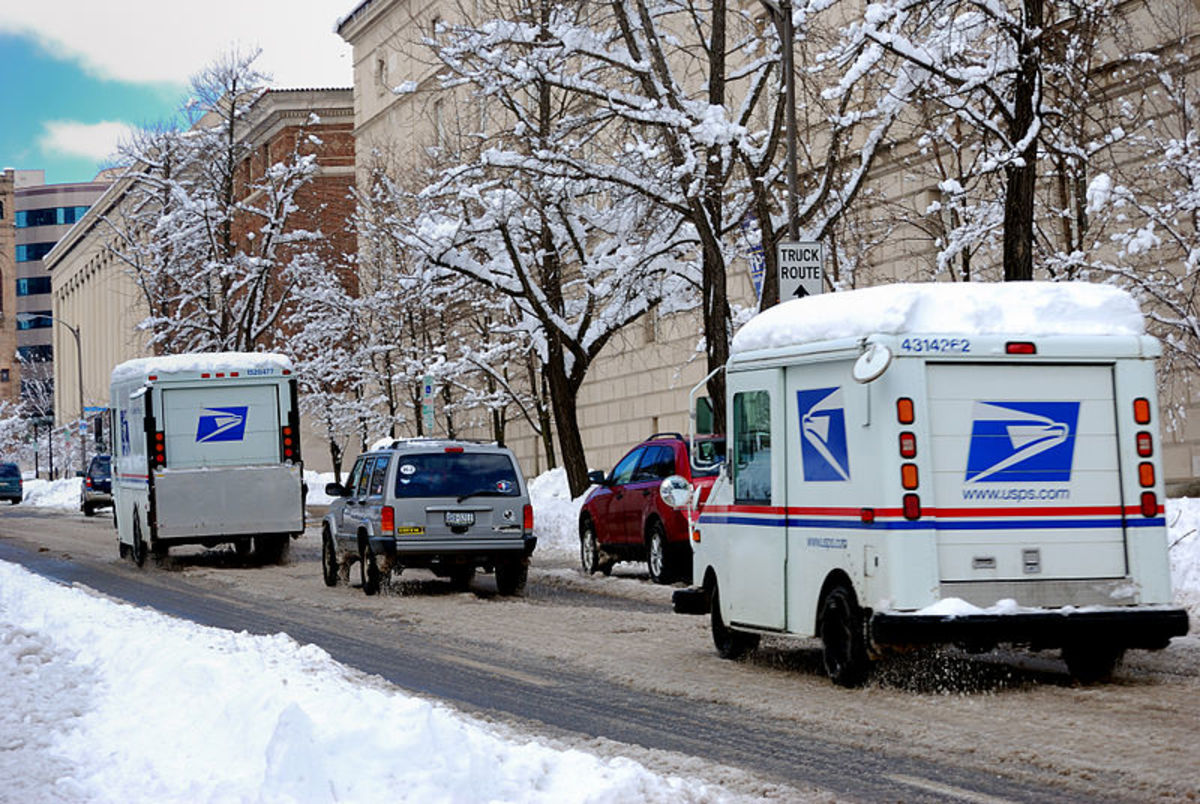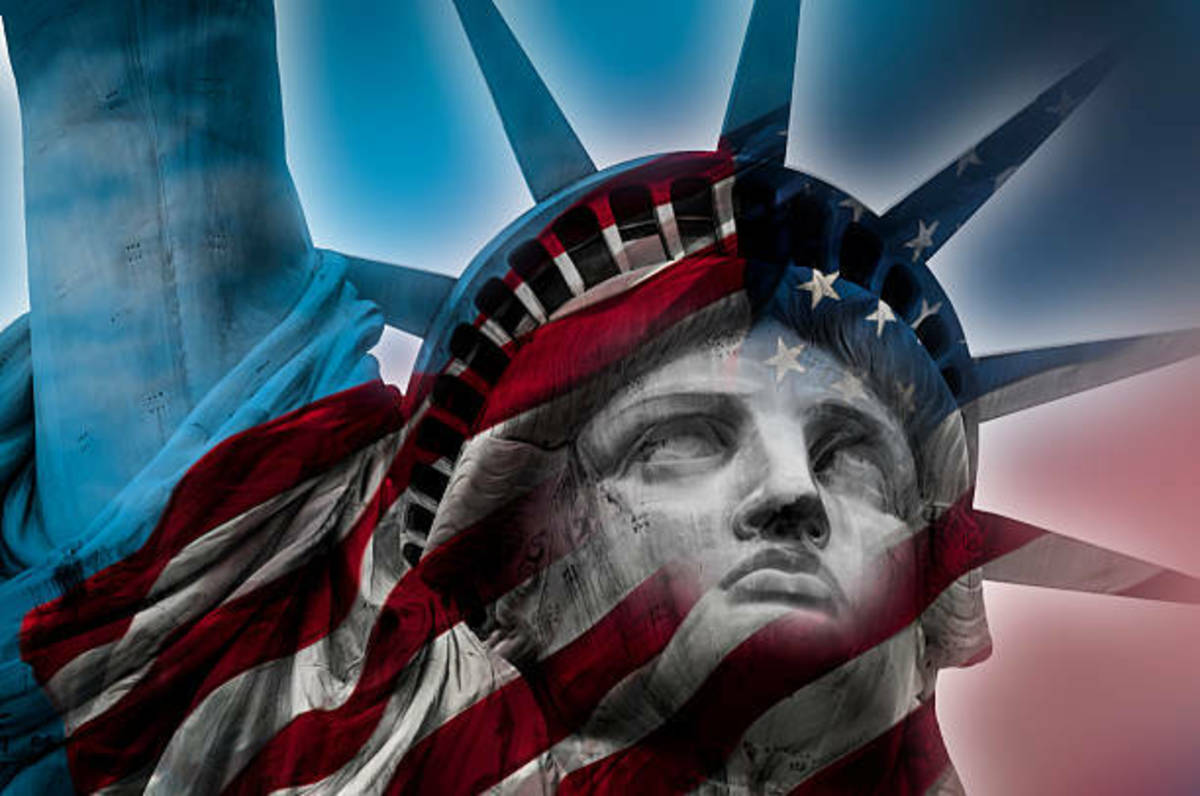Postal Myths Debunked - Does the United States Postal Service Run on Taxpayer Money?
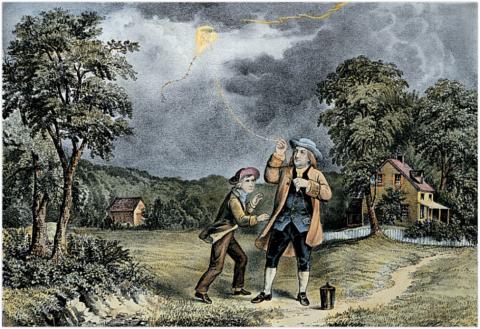
Preface - Ben Franklin, Polymath Postmaster
No, Polymath is not a course you had to repeat as a high school senior because you flunked it your junior year. Polymath is not a secondary education graduation requirement at all, but actually refers to an individual whose expertise and range of studies span a significant number of different fields. Many of our founding fathers, most significantly Thomas Jefferson and Benjamin Franklin, were polymaths. These were men who were conversant in multiple languages, developed scientific theories, had an extensive knowledge of natural history, and were successful businessmen. In their spare time they invented practical devices that are still in use today. The period in which these illustrious polymath American forefathers lived was known as the "Enlightenment," and enlightened indeed were these philosopher politicians who served the nascent Republic as few have since.
Benjamin Franklin's polymath achievements are legendary. Along with being a brilliant author and printer he was also a skilled statesmen, a scientist who made notable discoveries in the field of electricity, and a noteworthy inventor who is credited for the discovery of the bifocal glasses I am wearing right now and the Franklin Stove that keeps your tootsies warm on chilly November nights when it's not quite cold enough to crank up the furnace yet. Franklin did all of these things in spite of a formal education that ended in the second grade. He never had to repeat "Polymath 101" because he never took it the first time.
Our early polymath leaders had a highly developed sense of civic duty, something sorely lacking today. The enlightenment was an age in which notable men believed they should put their knowledge and wealth to use to promote the good of the nations in which they lived, and Benjamin Franklin was no exception. After his "Poor Richard's Almanac" made him very rich at an early age he turned his attentions to public service. One of the many hats he wore in his devotion to the Republic he helped to create was that of the first Postmaster General of the United States.
When Ben wasn't busy invading the boudoirs of the older women he fancied and perhaps conducting illicit, illegal experiments on corpses he developed a remarkably efficient postal system that actually turned a profit, first for the British crown and then for the fledgling United States. Postal and Profit are two words not usually found in close conjunction to one another, but Ben was the first to manage this seldom repeated feat. The Founding Fathers like Ben believed strongly in a public postal service, so much so that they wrote it into the United States Constitution. Communication, of which mail delivery was a critical component, was intended to be guaranteed to all Americans, independent of the price gouging and fleecing that sometimes takes place when free market capitalism degenerates into the corrupt collusion and monopolization practices of modern corporate capitalism.
So what would our enlightened polymath philosopher Benjamin Franklin think about the hue and cry that spews forth from the mouths of those most definitely unenlightened politicians of today? What would his opinion be of the clarion call for the end of a public postal service and the privatization of America's mail - or in other words, the drive to put the people's correspondence at the mercy of the corporate cronies the politicians serve?
On the rare occasions that I actually find a hundred dollar bill in my pocket I take it out, unfold it, and ask Ben this question. Ben looks up at me thoughtfully like he wants to answer but he never does, so of course I dutifully hand the bill over to my wife and forget about it.
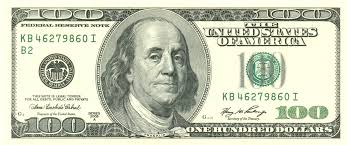
Shamelessly Exploiting Postal Myths
So if the purpose of this article is to debunk the prevailing postal myth that the United States Postal Service is taxpayer funded, why have I digressed into a discussion of enlightenment philosopher and American hero Benjamin Franklin right off of the starting block?
I do this because it's important to remember that Ben Franklin was a capitalist, and a very successful one. The other Founding Fathers were also avowed advocates of free enterprise, and let us not forget that capitalism was a very revolutionary theory at that time that made the mercantilistic crowned heads that governed us quake in their silver buckled foxhunting boots. Capitalist philosopher Adam Smith was the Karl Marx of his era; his radical enlightenment ideas were very much en vogue among the people who framed our Constitution, and one of these was our first postmaster Ben Franklin. Even so, the capitalists who wrote the constitution also believed in a public postal service, believing it to be an essential component of the infrastructure of the growing nation. The Constitution's framers took great pains to guarantee this institution by including it specifically in Article 1, Section 8, Clause 7 of our founding document.
Nevertheless, modern American politicians sneakily go about trying to dismantle the postal service by pinning that ugly "socialist" name tag to it, even though the framers of the Constitution had never even heard of socialism. Therefore, denouncing them as dangerous "reds" is an act of audacity that even Darrell Issa and the rest of his anti-postal cronies would be beyond trying - maybe.
One insidious action that Issa and his ilk are not above doing is whatever is required to carry out the destruction of America's only constitutionally guaranteed civilian organization. Toward this end, they exploit and perpetuate myths about the Postal Service that strike a nerve with a taxpaying public struggling to pay for the disastrous effects of trillion dollar oversea's conflicts and a new health care program that has cut deeply into the pocketbooks of the middle class.
One of the pervading myths that has been ingrained deeply into the collective psyche of America is that their Postal Service is run upon the largess of the taxpayers. At times this incorrect notion fosters an altogether hostile attitude toward Ben Franklin's tried and true delivery service, and adds fuel to the fire for those anti-postal politicians who know darn well the postal service pays its own bills, but for their own nefarious purposes choose to let the myth persist in the minds of the voters.
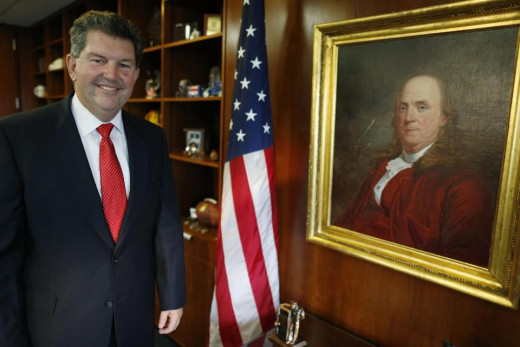
Postal Reorganization Act of 1970
If your memory goes back before 1970, as is the case with many of us who are getting long in the tooth, then your assumption that the Postal Service is taxpayer funded is understandable, because prior to the Postal Reorganization Act of 1970 the post office was indeed a line item on the federal budget. Before the 1970 Postal Reorganization Act Congress funded approximately 20 percent of the organization's operating expenses in order to keep it solvent.
Then in 1967 a Presidential Commission was formed to study ways to make the postal service a viable entity that was capable of operating as a business and sustaining itself entirely from its own operational income. The Commission concluded that the Postal Service should become a "self-supporting organization" in order to meet the demands of the growing economy and the expanding population.
The 1970 Postal Reorganization Act, signed into law by Richard Nixon on August 12, 1970 abolished the Post Office Department, which had actually merited cabinet rank up until that time. For the first 200 years of our nation's history Postmaster General was a highly coveted cabinet post and PMGs bumped elbows with presidents around the oval meeting table. This cabinet rank ended with the abolishing of the Post Office Department and the creation of the United States Postal Service; a corporate-like independent agency that had a legal monopoly on the delivery of mail in the United States. Congressional subsidies of the Postal Service were then eased out over the next 15 years and since that time the USPS has been self sustaining, except for minor subsidies for mail for the blind and for overseas mail ballots.

So who is Stealing from whom?
In spite of the Postal Service's post 1970 "independent" budgetary status, the Office of Management and Budget (OMB) and the Congressional Budget Office (CBO) view the USPS as a veritable magic goose that craps out golden eggs at periodic intervals for lawmakers to lug down the Congressional beanstalk to their pork barrel patrons.
To cite an example from recent history, in 2003 the Office of Personnel Management reported that the United States Postal Service would overpay its retirement obligations by 71 billion dollars. Congressmen began salivating profusely as they pondered this prospective windfall, and immediately passed the Postal Civil Service System Funding Reform Act. The estimated 3.1 billion retirement plan savings produced by this law were to be held in escrow and reserved for future use as determined by Congress. Translation: through this law Congress was given the power to legally drain the postal coffers of any paper surpluses.
The same act also made the Postal Service responsible for paying its employees' retirement benefits for time spent in prior military service. This took the financial burden away from Congress for certain veteran's benefits and put it on the back of the post office; effectively eliminating the 3.1 billion estimated retirement savings and eliminating any postal budget surplus for the ten year window mandated by the 2003 Civil Service Reform Act. As a consequence, stamp prices had to be raised from 37 to 39 cents. Postal customers certainly pissed and moaned again about what a woefully inefficient organization the post office is, when in reality it was Congressionally mandated theft that made that particular rate increase necessary.
By 2006 the Postal Service had still managed to accumulate 326 billion dollars in assets in its pension fund; which amounted to being 91% prefunded to pay out retiree benefits. When this is compared to 42 percent prefunding for the average government agency and 80% for Fortune 500 companies, it makes one wonder why "USPS retirement shortfalls" are always used as a rallying cry for politicians who wish to dip their gluttonous fingers into the postal cookie jar.
Probably the most brazen deed of shameless postal looting was the Postal Accountability and Enhancement Act of 2006, a piece of legislation that required the Postal Service to prefund its retirement obligations for the next 75 years by paying 5.5 billion dollars annually into the Postal Service Retiree Health Benefits fund,which I already mentioned was about 90 percent funded at the time. In addition, the 2006 PAEA law required the postal service to stop using its savings to pay down its debts, a ridiculously onerous stipulation that could never be legally required of any other business entity. Is it any wonder then that the Postal Service immediately went into a financial tailspin in which it remains almost hopelessly mired, even though its income from operations exceeded costs in 2013 and it would have been profitable if not for the unprecedented burdens imposed upon it by the PAEA?
It causes a bit of head scratching to ponder what the ultimate purpose is of requiring a company that already has an almost fully funded retirement system to pay an additional 5.5 billion annually into that fund. You can bet the Congressional postal pantie raiders are licking their chops right now, figuring out what devious means they are going to use to sneak through the second story window and abscond away by night with these so-called "retiree" benefits.
It doesn't stop there. The latest plot to loot the Postal treasury came in the form of a plan by certain seedy members of Congress to refill the nearly empty highway trust fund with the 2.1 billion surplus that will supposedly burst forth from the postal treasure chest when Saturday delivery is eliminated. Luckily this proposal was shot down before it got off the launching pad, but most certainly we can expect to see more underhanded efforts like this.
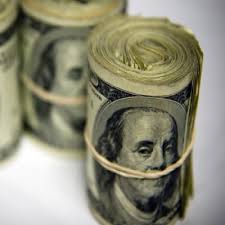
Adjunct Myth - "Private Enterprise" will do the job more Efficiently?
So I think I have demonstrated that the postal service is not funded by the taxpayers, but instead is often used as a source of cash to inject into the dollar bleeding general fund. But the facts never stop Congressional allies of the Postal Service's competitors from using the economic woes they have forced upon the USPS as an argument for "privatization" of mail delivery, crying out that "private enterprise" can most certainly do a better job with the people's mail.
It actually makes me laugh when people refer to the postal service's competitors, most notably UPS and FedEx, as "private enterprise." UPS and FedEx actually only believe in private enterprise when it is convenient for them to do so, such as when the concept allows them to set their own shipping rates (without Congressional approval) to boost the bottom line and fly their own fleets of aircraft for greater efficiency. At all other times they act decidedly contrary to the spirit of free competition by leaning on allies in Congress to pass laws that would kill the USPS if left unchecked.
As an example, the United States Postal Service was actually prohibited by Congressional shakedown to lower its prices on overnight Express Mail when UPS and FedEx cried foul. More recently, these two major shippers have called upon lawmakers to prevent the USPS from lowering prices on parcel delivery, claiming that the Postal Service uses its monopoly on first class mail to subsidize these price reductions. In raising up this latest anti-postal outcry UPS and FedEx neglect to mention that they do not have their operating funds looted of 5.5 billion annually like the Postal Service does, something that most certainly offsets and reverses the first class mail advantage.
I remember from High School Econ 101 that price competition is one of the key features of a free market economy, but postal competitors UPS and FedEx are busy rewriting Adam Smith's doctrines to conform to their own version of corporate crony oligarchical capitalism at the expense of the low priced mail delivery that is guaranteed by the Constitution.

Conclusion
Our founding fathers, such as Polymath Benjamin Franklin, specifically intended for the Postal Service to be an entity of the Federal Government. As such, they probably would not have approved of the abolishing of the Post Office Department and the creation of the United States Postal Service that occurred with the Postal Reorganization Act of 1970. All the same, for the most part the Postal Service has functioned quite well in its "independent" status, except in those cases where Congress has not allowed it to function independently through using its own revenues to sustain its own business operations, as any truly independent business could expect to do.
Instead we have this strange hybrid two-headed Postal entity that would most assuredly make poor Ben Franklin flop around restlessly in his grave in horror if he could somehow lay eyes upon it. America's post office has fallen into the hands of highly unscrupulous men, none of them Polymaths like our enlightened Ben, and it is up to Americans as voters to ensure that these agents of greed do not destroy what belongs to Americans by the highest law of the land.


